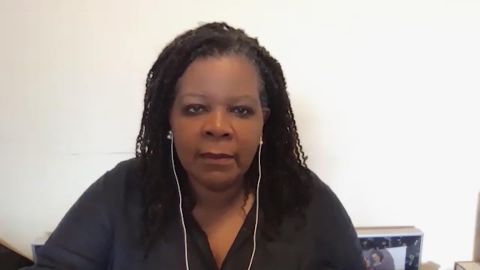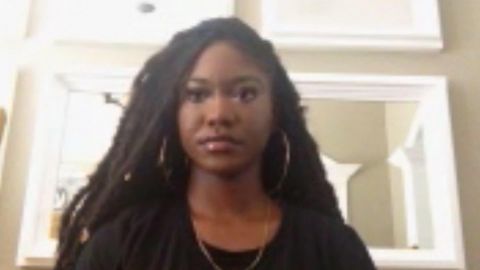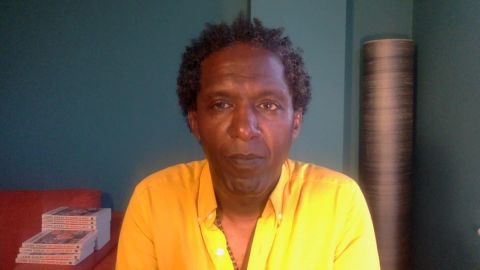Read Transcript EXPAND
CHRISTIANE AMANPOUR: Until you were 12 years old, you didn’t see anybody or know anybody in any meaningful way that looked like you. What effect did that have on you? Were you aware of it then?
LEMN SISSAY, POET AND AUTHOR, “MY NAME IS WHY”: Yes. Well, I grew only with indigenous English people. So, mainly the color of skin — the color of their skin was white. So, they — I heard the fear, the fear of the city. The fear of other black people. You know, they were deemed to be less, to be a threat, et cetera. And there was a lot of racism at school. I mean, it’s — racism is something that comes from people who are both frightened and don’t understand the world. So, I was brought up amongst frightened people who don’t understand the world. Yes. And my name —
AMANPOUR: You said —
SISSAY: My name means the question why.
AMANPOUR: You say — and is that what it means, Sissay, is the question why?
SISSAY: No, Lemn, which is said lemon in Ethiopia.
AMANPOUR: Lemn?
SISSAY: Yes, it means the way it’s pronounced in Ethiopia is lemon. And it means the question why. It’s as simple as that. And that’s the name my mother gave me and that’s the name on my birth certificate. And I received my birth certificate after I’d left the foster parents and I was brought up in the children’s homes of England. And it is the best name, the best name in the world is the name that you were given, you know.
AMANPOUR: Yes, it must be. But I also know that we all have been mispronouncing it for a long time because we’ve been saying Lemn and you call yourself Lemn when — no, you don’t? You don’t?
SISSAY: No, look. It’s very simple. When I was in England when I received my birth certificate, I didn’t know any Ethiopians. So, I thought my name was Lemn. I thought it was a spelling mistake. Then when I went to Ethiopia, when I met my mother, it’s lemon. And so, Ethiopians, they can call me lemon. That makes my heart burst and everybody else, it’s OK, I’m Lemn.
About This Episode EXPAND
Activists Aalayah Eastmond and Alicia Garza reflect on the role of young people in social movements like Black Lives Matter and the March for Our Lives. Author Lemn Sissay recounts his experiences of systemic racism growing up in Britain. Historians Annette Gordon-Reed and Jon Meacham discuss Thomas Jefferson’s complicated legacy.
LEARN MORE


